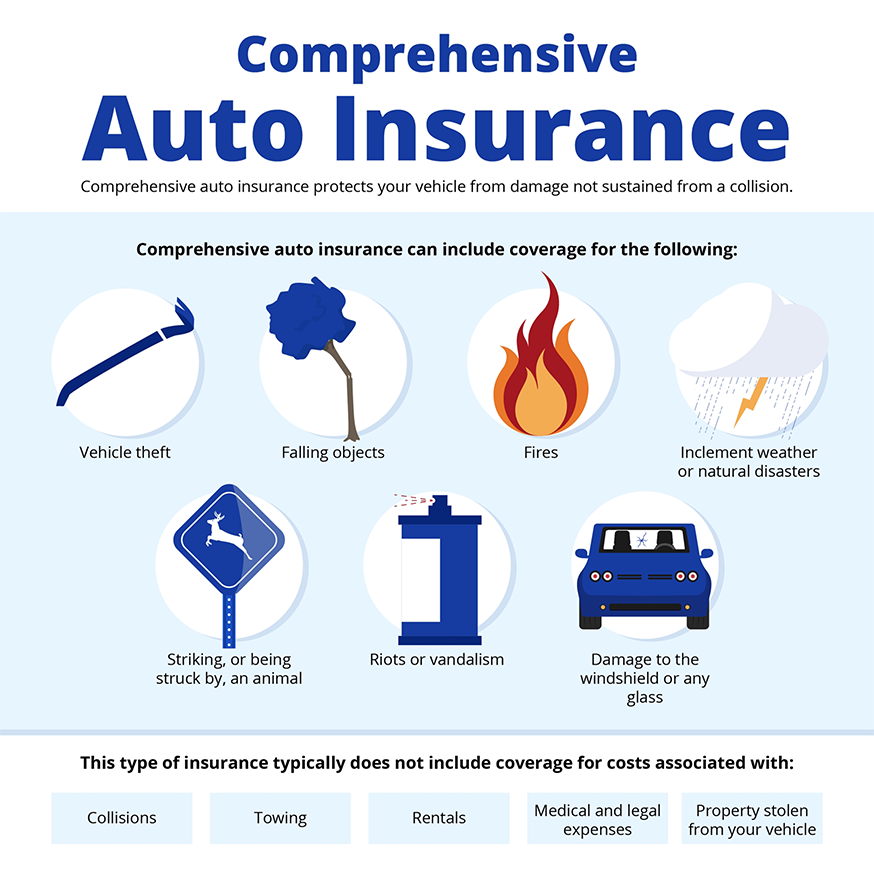Driving a car comes with a certain level of risk, and when the unexpected happens, having the right type of insurance coverage can be a lifesaver. One of the most crucial types of coverage to consider is comprehensive coverage, which protects you against damages that occur when you’re not behind the wheel. But what exactly is comprehensive coverage, and why is it a vital component of your car insurance policy?

Comprehensive coverage is the unsung hero of car insurance. Unlike liability insurance or collision insurance, which focus on protecting you against damages caused by an accident, comprehensive coverage protects your vehicle against everything else. From natural disasters to animal collisions, theft, vandalism, and more, comprehensive coverage has got you back.
When it comes to damages that aren’t related to an accident, comprehensive coverage steps in to help cover the costs. For instance, if a strong storm comes through and knocks a tree onto your car, comprehensive coverage can help cover the repair costs. Similarly, if your car is broken into or vandalized, comprehensive coverage can help pay for the damages.
But that’s not all – comprehensive coverage also protects you against more bizarre incidents, like animal collisions or a stolen car. Yes, you read that right – if you hit a deer or another animal while driving, comprehensive coverage can help cover the repair costs. And if someone steals your car, comprehensive coverage can help cover the costs of replacing it.
So how does comprehensive coverage work? In most states, comprehensive coverage is a separate component of your car insurance policy, which means you can adjust the level of coverage to suit your needs and budget. You’ll typically pay a deductible, which is the amount you’ll need to pay out of pocket when you make a claim, and then your insurance provider will cover the rest.
It’s worth noting that comprehensive coverage is usually required by lenders if you’re financing a car. This means that if you lease or finance a car, you may be required to carry comprehensive coverage as part of your insurance policy.
How much does comprehensive coverage cost? The cost of comprehensive coverage can vary depending on a range of factors, including your location, driving record, and the value of your vehicle. However, the good news is that comprehensive coverage is usually relatively affordable, especially when compared to other types of coverage like collision or liability insurance.
If you’re considering adding comprehensive coverage to your insurance policy, here are a few things to keep in mind:
- Value of your vehicle: Comprehensive coverage may be more essential if you own a valuable vehicle or a newer car.
- Location: Drivers who live in areas prone to natural disasters, like earthquakes or hurricanes, may want to consider carrying comprehensive coverage.
- Deductible: Choose a deductible that you can afford to pay out of pocket when making a claim.
- Coverage limits: Check to ensure that your coverage limits are adequate to cover the full value of your vehicle.
In conclusion, comprehensive coverage is an often-overlooked component of car insurance that can save you from significant financial burden when the unexpected happens. Whether you’re dealing with natural disasters, animal collisions, theft, or vandalism, comprehensive coverage has got your back. By understanding what comprehensive coverage is and how it works, you can make informed decisions about your insurance policy and drive with confidence.




